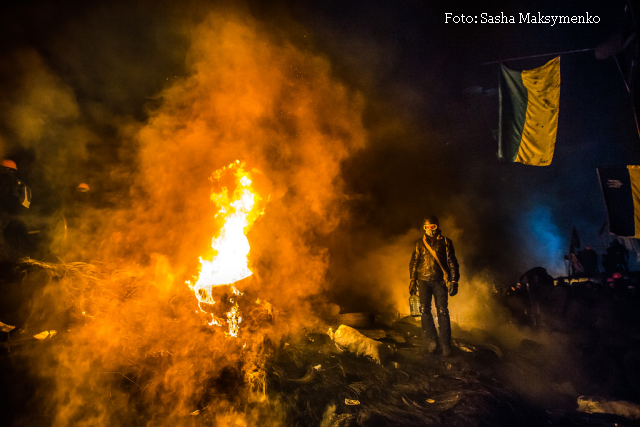The Romanian ethnic community and the conflict in eastern Ukraine
Bucharest is worried about the situation in Ukraine, not least because of the considerable Romanian ethnic community in this country.

Bogdan Matei, 04.02.2015, 13:56
It will be one year in March since the outbreak in eastern Ukraine of what commentators describe as the worst security crisis in Europe since the Cold War. Moscow’s annexation of the Crimean peninsula and its financial, logistic, political and military support for the pro-Russian secessionist uprising in Ukraine’s eastern regions have been firmly condemned by all officials in Bucharest. The country’s Parliament, the new president Klaus Iohannis, his predecessor Traian Basescu, prime minister Victor Ponta, the former foreign ministers Titus Corlatean and Teodor Melescanu as well as the current foreign minister Bogdan Aurescu have all described Russia’s involvement as an act of aggression and have called for compliance with Ukraine’s sovereignty and territorial integrity.
As a member of the European Union and NATO and a strategic partner of the United States, Romania has not hesitated to support the economic and political sanctions against Russia proposed by Brussels and Washington. The new pro-Western government that came to power in Ukraine at the beginning of 2014 has benefited from constant support from Romania. Ukrainian citizens wounded in the bloody reprisals ordered by the former pro-Russian president Viktor Yanukovich received treatment in Bucharest hospitals. Within NATO, Romania has pledged to ensure Ukraine’s cyber security.
Romania’s concern for the crisis in Ukraine is motivated by two factors. On the one hand, Ukraine is the largest of Romania’s neighbours, both in terms of surface area and population, and has a common border with Romania along hundreds of km. On the other hand, Ukraine is home to almost half a million ethnic Romanians, most of whom live along this border.
Annexed by Stalin in 1940 following an ultimatum, part of the former Romanian eastern territories, including northern Bukovina, the north and south of Bassarabia, the Herta country and the Serpent Island, was inherited by Ukraine in 1991 as a successor state of the former USSR. While Bucharest has no claim on these territories today, its interest in the situation is justified by the existence of the large ethnic Romanian community in these regions, whose rights should be observed.
The country’s foreign minister Bogdan Aurescu has again informed Ukraine’s ambassador to Bucharest Teofil Bauer of Bucharest’s wish that the partial mobilisation of the population in response to the conflict in the east of Ukraine should not be selective and discriminatory on ethnic grounds. Bucharest’s reaction comes after reports that the Ukrainian authorities decided to impose restrictions on foreign travel to prevent people from fleeing the country to avoid being drafted. Bogdan Aurescu says Romania is closely looking at the mobilisation process and stays in permanent contact with the representatives of the Romanian ethnic community and the Ukrainian civilian and military authorities. While they are loyal citizens of the Ukrainian state, the ethnic Romanians do not wish to be used as “cannon fodder” in a war which they feel is not theirs.






























